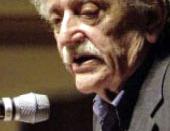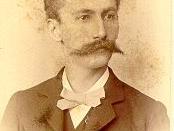Once in a while, literary work is created that stirs up many minds, seems to never go away. Those books usually speak out about something that is deeply rooted in society; Evil, they speak out against it. One of those works is Slaughterhouse-Five by Kurt Vonnegut. It is a masterpiece of modern writing. As the story in the book unravels, there are several recurrent themes, stated through a variety of literary techniques.
The most striking theme is self-righteousness versus evil. Amazingly enough, Vonnegut, reveals self-righteousness as a force for evil. In the name of justice, a glorious end to a war, man commits injustice; bombing of Dresden. By the same means the author uses the feeling of nationalism. Nationalism makes people blind to their faults, and emphasizes 'Others' shortcomings. War quickly reduced a self-righteous nation to the moral level of the enemy, and yet it stayed justified. War makes it difficult for a human being to achieve it's fullest potential.
That is the nature of war. It turns humans into passive, conforming sheep that lose their humanity to do justice for their nation.
It is difficult to write about war. Most modern literature tends to glorify it. That action is not intended, it simply happens through direct approach to the facts that today's drama requires. Vonnegut, through his chaotic, indirect approach, shows the other nature of war, the not so glorious one. Even Vonnegut once said; Art must represent not the results, but the process, in order to represent the situation better.
Vonnegut transfers the horror of the war to the reader through the confusion of the main character; Billy Pilgrim. Billy seems to travel in time, or the 'objective time'. The novel presents that mechanical time as only one weight of measure, it totally shuts out the...



Great Job@!
This essay depicts this literary as being a masterpiece of modern literature and gives thorough explanations of everything stated throughout the essay. Great job!
3 out of 3 people found this comment useful.